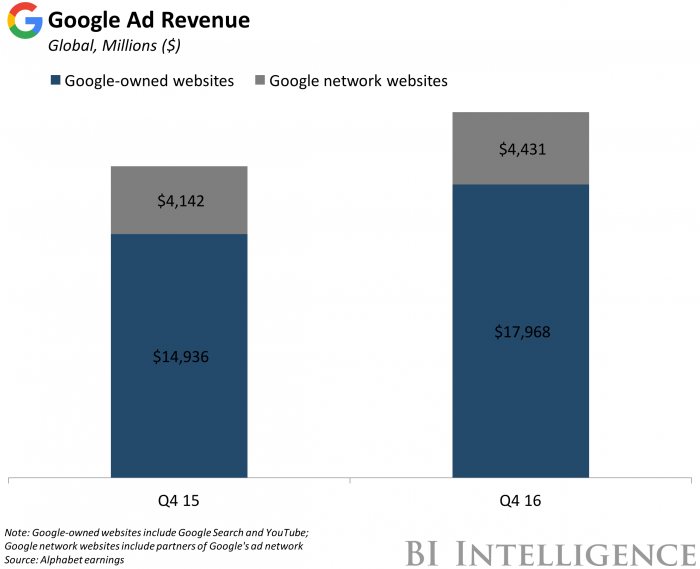The enormous Google fine shows how tough the EU can be on big tech companies (GOOGL, GOOG)

BI Intelligence
This story was delivered to BI Intelligence "Digital Media Briefing" subscribers. To learn more and subscribe, please click here.
The European Commission fined Google €2.4 billion ($2.7 billion) for abusing its market dominance by favoring its own comparison shopping service in search results.
The findings state that Google has given preference to its own shopping services search results over others by demoting rival comparison shopping services in its shopping services search results. Google must change the way it operates within 90 days or face additional penalties and risk being liable for up to 5% its average daily worldwide revenue.
Google’s issued a statement in rebuttal, indicating its data showed users preferred search results that take them directly to products they want, and do not want to repeat searches for products on a website they are linked to. The company believes its ads that include pictures, prices, and ratings are beneficial to advertisers and consumers.
The fine represents a sizable percentage of Alphabet’s quarterly revenue. Google’s parent, Alphabet, reported over $26 billion in revenue in Q4 2016, with Google driving the majority of Alphabet’s revenue. The $2.7 billion EU fine equates to roughly 10% of Alphabet’s Q4 2016 revenue. This is widely considered the EU’s most significant antitrust ruling since 2004, when Microsoft was fined over $500 million, according to TechCrunch.
This is the latest example of how critical European authorities have been on large technology companies. Facebook was fined roughly $122 million by the EU in May for misleading regulators during the review process of its WhatsApp acquisition. Additionally, France fined Facebook nearly $167,000 in May as well, for lacking transparency in its data collecting and sharing practices. This stringent regulatory environment makes it more difficult for companies to operate, given the increased time and resources necessary to remain compliant with given rulings. Additionally, the stringent environment does not bode well for Google, which is also currently facing two other separate investigations by the EU in relation to its advertising products and its mobile operating system (OS) Android.
To receive stories like this one directly to your inbox every morning, sign up for the Digital Media Briefing newsletter. Click here to learn more about how you can gain risk-free access today.
See Also:

 Yahoo News
Yahoo News 

